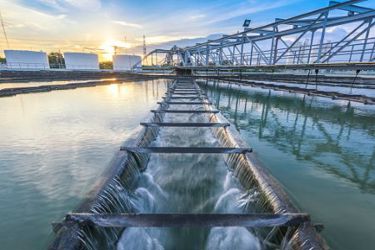Sustainable Water Management Solutions

The term “carbon footprint” has been on everyone’s lips since the start of the climate change discussion. Very few industries can claim that they play no part in impacting the carbon footprint – either for good or bad. This is also true for the water and wastewater industry that will have to take a closer look at increasing the efficiency of their facilities to reduce their carbon footprint.
Carbon footprint in the realm of the water and wastewater industry involves taking a critical look at the energy consumption and the efficient use of the resources that are available. This not only implies efficiently operating the facility itself but also effectively managing the facility’s biggest asset; water.
A problem that many utilities are dealing with is non-revenue water (NRW), which is water that has been produced and is lost before it reaches the customer. High levels of NRW are detrimental to the financial viability of water utilities, since a significant amount of resources goes into producing water that is ultimately unaccounted for.
Get unlimited access to:
Enter your credentials below to log in. Not yet a member of Water Online? Subscribe today.
